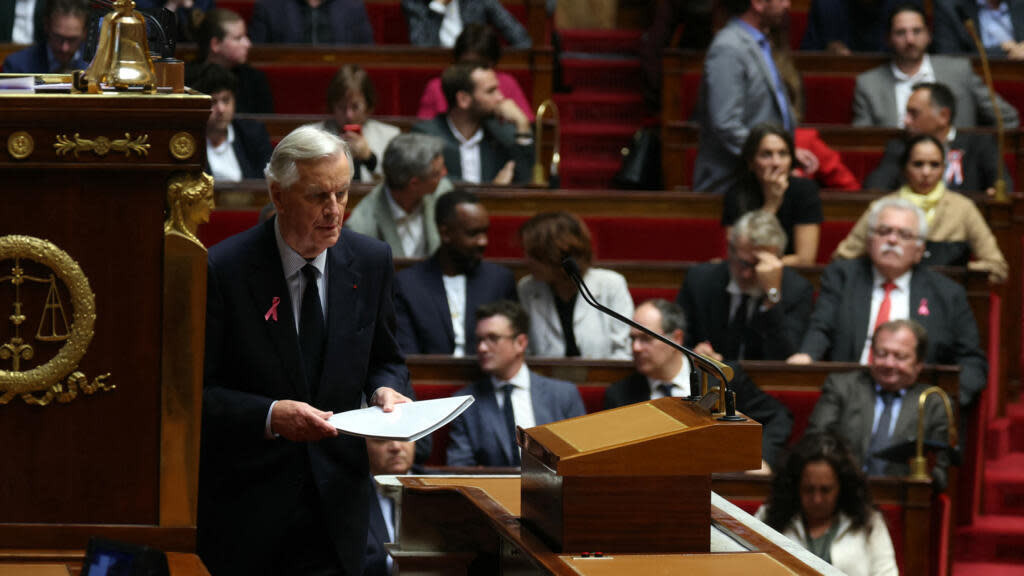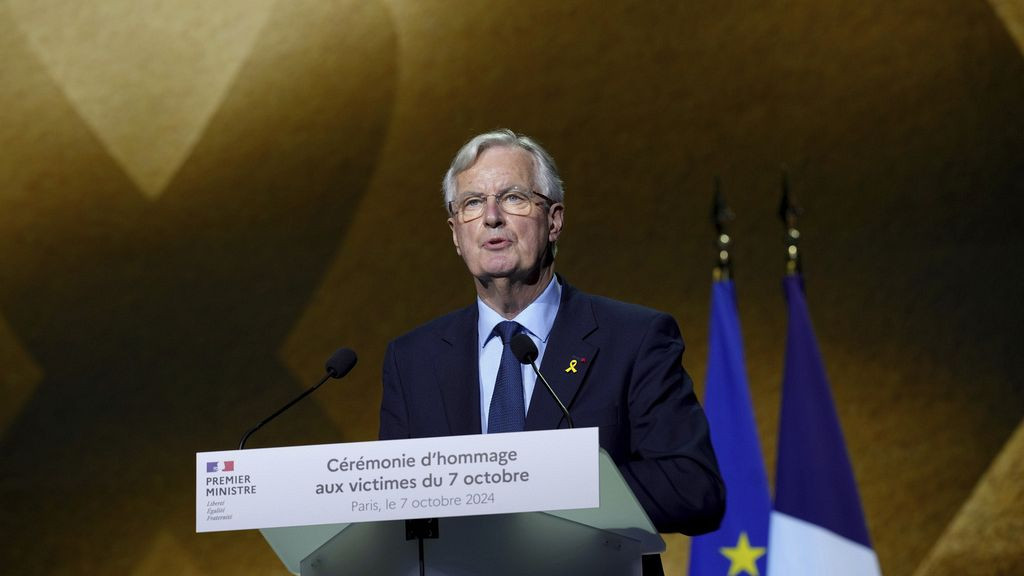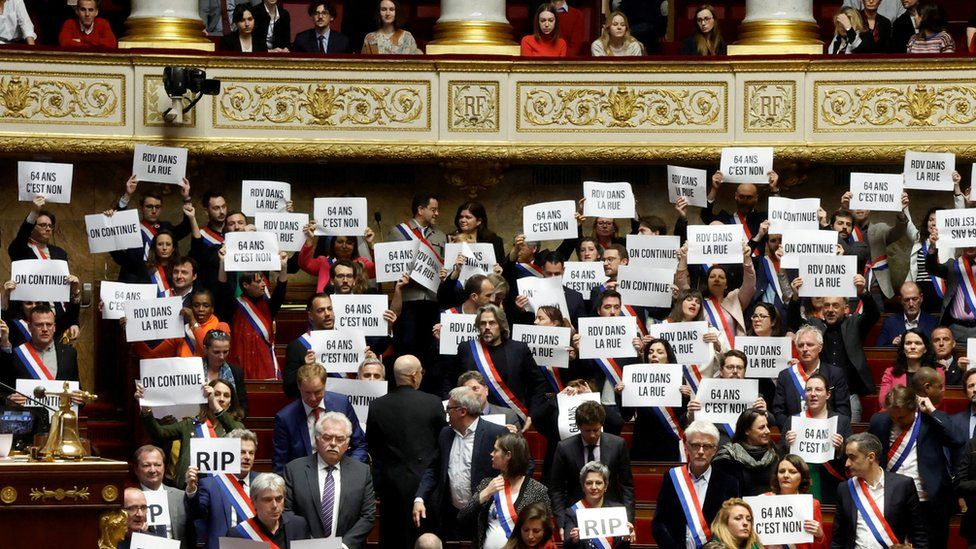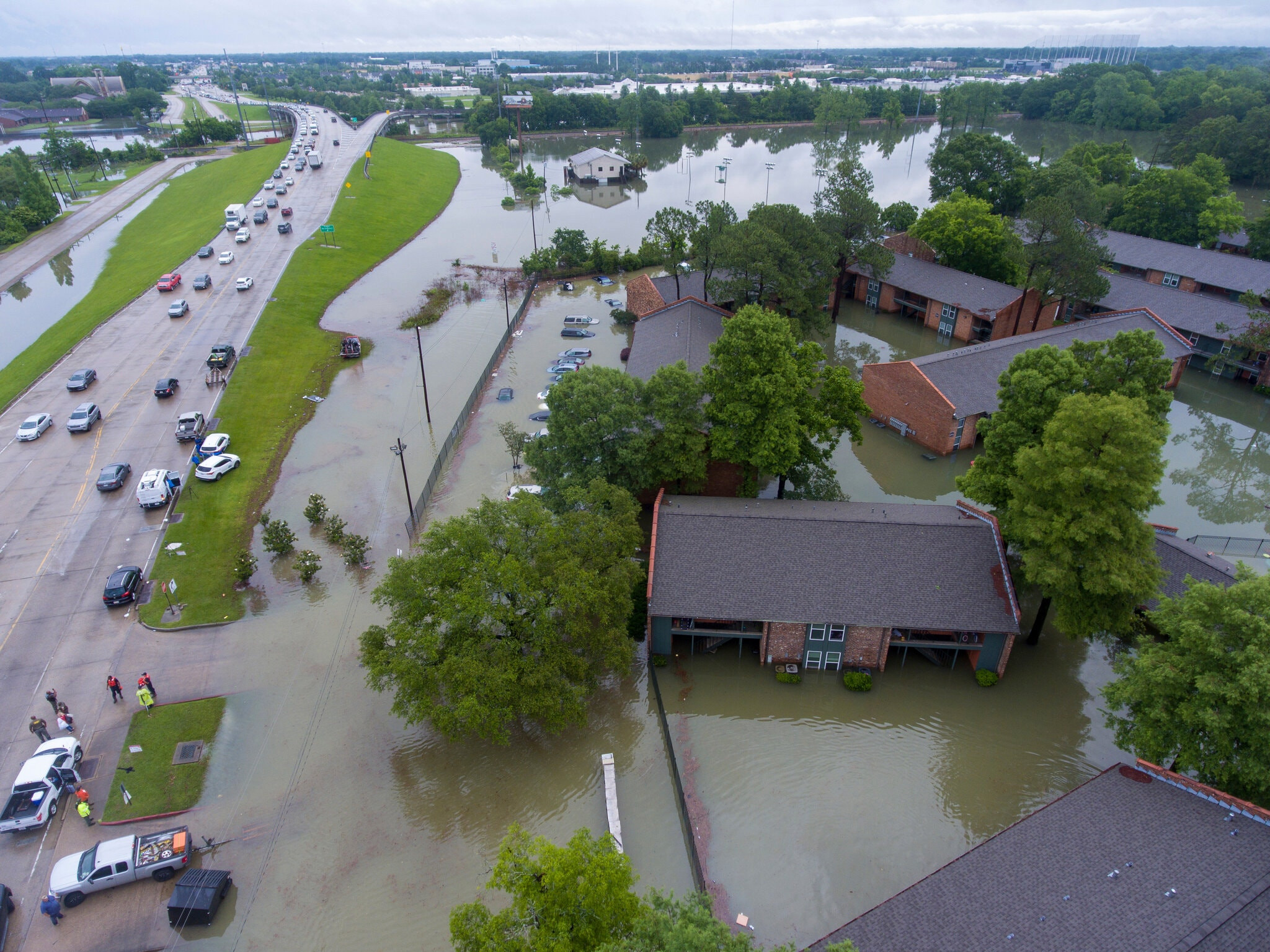France's Political Earthquake: A No-Confidence Vote Shakes the Nation
French Prime Minister Michel Barnier is facing a critical challenge to his leadership, as a no-confidence motion looms large, threatening to plunge the nation into political turmoil. The motion, introduced by left-wing lawmakers, follows Barnier's controversial attempt to bypass parliamentary approval for a significant portion of the 2025 budget. This budget, totaling €60 billion ($62.8 billion), includes substantial tax hikes and spending cuts designed to rein in France's ballooning deficit.
The Budget Showdown and its Fallout
Barnier's decision to utilize a constitutional clause to circumvent a legislative vote has backfired spectacularly. This maneuver, while granting him the power to push the budget through, has simultaneously presented his opponents with a golden opportunity. The left-wing lawmakers, long vocal in their opposition to Barnier's government, have seized this chance, initiating the no-confidence motion.
The Left's Strategy
Mathilde Panot, a prominent left-wing lawmaker, expressed her intentions clearly on social media, stating, “This is one power grab too many by an illegitimate government.” She further issued a warning to President Emmanuel Macron, indicating that Barnier's downfall is imminent, foreshadowing potential consequences for Macron himself. The pre-debate vote is scheduled for Wednesday, setting the stage for a high-stakes political confrontation.
The Far-Right's Role: Marine Le Pen's Calculated Move
Marine Le Pen and her far-right National Rally party have also entered the fray. Initially, Le Pen appeared more conciliatory with Barnier. However, the party's stance hardened significantly when Barnier failed to fully meet their demands by a self-imposed deadline. Le Pen explicitly declared her party's intention to support the no-confidence vote, citing widespread public dissatisfaction with Barnier's policies. She emphasizes the prevailing sentiment that the populace has grown weary of perceived maltreatment and expresses pessimism regarding the effectiveness of Barnier's leadership. Le Pen’s strategy seems less about genuine ideological disagreement, and more about seizing a moment of political instability to gain leverage.
Le Pen's Gambit
The far-right's involvement adds another layer of complexity to the situation. It's a strategic manoeuvre by Le Pen and her party to capitalize on the crisis and potentially expand their influence in French politics, either in negotiations with Macron for a cabinet position or as a catalyst for further destabilization. The coming days will be crucial in determining whether this calculated gamble pays off for Le Pen, or results in political overreach.
Market Reactions and Economic Uncertainty
The political uncertainty surrounding the no-confidence vote has sent ripples through the financial markets. Investors are expressing considerable concern about the potential instability caused by a government collapse in Europe’s second-largest economy. The prospect of France lacking the necessary fiscal discipline and political will to address its financial issues is alarming, with France's budget deficit currently projected at 6.1% of GDP for 2024—more than double the permissible limit under European Commission regulations. This has caused concerned investors to view French credit as nearly as risky as that of Greece, further highlighting the severity of the situation.
The Economic Stakes
While Barnier's budget has temporarily provided some relief to markets and eased concerns in Brussels, it has come at the cost of angering significant segments of the political spectrum, including the far-right. The economic uncertainty is not merely theoretical, the potential disruption to the French economy caused by a government collapse could have serious global implications, affecting everything from international trade to financial markets.
Potential Outcomes and Macron's Options
Should the no-confidence motion succeed, France could face significant political instability. This scenario will bring forth a number of potential outcomes for President Macron to consider. The current budget would be nullified, and Barnier's government would transition into a caretaker role pending the appointment of a new Prime Minister. While the possibility of a US-style governmental shutdown is absent due to provisions in the French constitution, a prolonged period of political uncertainty would undoubtedly cause significant disruption.
Macron's difficult choices
Macron faces a series of complex choices. He could reappoint Barnier, a move likely to be perceived as provocative, or attempt to forge a new coalition government, a challenging task given the fragmented political landscape. A technocratic government could potentially provide temporary stability, but this option might lack the political legitimacy required to effectively navigate the economic and political challenges confronting France. Finally, Macron could even consider resigning, potentially triggering new presidential elections. However, this is viewed as an unlikely outcome for now. The political future of France hangs in the balance, and all eyes are fixed on the upcoming no-confidence vote and its potential consequences.
The Unfolding Drama: A Nation Holds its Breath
The coming days will be pivotal in determining France's future. The political tension is palpable, with the potential for widespread repercussions extending far beyond France's borders. The situation highlights the fragility of political coalitions in the modern era, and the substantial impact political instability can have on economic stability and investor confidence. Whether this crisis results in a government collapse, a negotiated compromise, or a temporary reprieve remains to be seen. The stakes are exceptionally high, and the world watches as France navigates this critical moment in its history. This precarious situation underscores the importance of strong and stable governance in ensuring national and international stability.



















